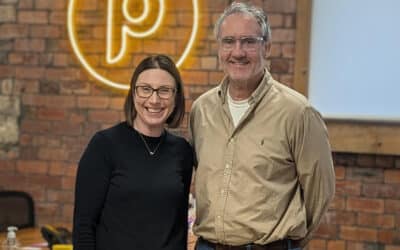Since the beginning of lockdown, furloughing has become commonplace for many businesses – for some, the financial support for individual employees is the lifeline they needed to make it through this crisis.
Tim Downs, Director of Aberfield Communications, says agency owners must steer clear of furloughing just to preserve profits, but stick to their values and support their valued teams.
As an industry we spend our time advising clients on the benefits of transparent communications, and explaining the virtues of trading on their values – that consumers are looking for businesses that share their values, and this is a commodity that helps build brand loyalty in an age where it is in short supply.
Well, it’s time for agency owners to step up and live by their own advice when it comes to the decision to furlough members of their team.
We have a responsibility for the wellbeing of employees, and that means ensuring that they come through this not only financially stable but also mentally able to deal with the coming months.
That’s why we have decided not to furlough any members of the team currently despite there being an argument for us to do so.
Staying true to your values
At Aberfield we’ve always placed a strong set of values at the heart of what we do with an emphasis on looking after people. As an agency owner, it’s important to me that I live by these.
Like many, we have seen our revenues cut and a number of clients mothball activity because of the impact on their businesses. We’ve worked with those that need help, to accommodate this and reach agreements that work for both of us – because it’s the right thing to do, and we all need to demonstrate as much goodwill and compassion as possible at this time.
Amid the uncertainty, the Government’s furlough scheme has offered a significant lifeline to many businesses that without it would be forced to make significant redundancies or close their doors altogether.
Furloughing – not an investment protection scheme
However, it seems a number of businesses have jumped at an opportunity to save money far too quickly, rather than protect the wellbeing of their employees in the long-term – and I’m not just talking about big football clubs.
I passionately believe – and the Government definition agrees – that furloughing is a job retention scheme, there to protect employment by supporting businesses that would otherwise be forced to cut jobs, or would go under because of cashflow problems linked to paying employees.
It is not there simply because there isn’t enough fee-paying work to fill people’s hours, to prop up profit, or protect shareholders’ funds. If you have the resources to keep people employed without exposing the wider business to risk, you should do.
Any gains and profits that owners have been able to accrue over the years are only there because of the hard work of the whole team – and those people should be protected ahead of anything else. Profit is not guaranteed in this world, and you need to plan for the worst as well as take the rewards.
I’m not averse to furloughing, but only when actually required; we continue to review it on a weekly basis with the view that there may come a time when it’s necessary. However, if owners ‘take advantage’ of the scheme instead of accessing it when it is necessary, they’re asking the taxpayer to foot the bill to protect their own personal investment. And that is not right.
Choosing a different approach
For now, we are choosing a different path. Where we have capacity, we are choosing to take a proactive approach and focus on the areas of the business that will mean we are in the best shape possible when we emerge from the pandemic.
That means prioritising business development, marketing, training and development, and the areas of the business that sometimes get neglected when we’re really busy.
We’re a small team with a high degree of flexibility and no investors or banks to answer to, so we’re in a reasonably fortunate position, but the response from the team has already been significant, and for that I thank them.
They have understood what is required and the investment we are making in them, and taken on the shared responsibility of looking for opportunities and looking after each other. How they think about clients and their businesses and how our work adds value has become more evident – their commercial thinking is evolving, and they and our clients will ultimately benefit from this.
I’m confident that long-term, this will add greater value to the business in a variety of ways instead of just saving money in the short-term.










